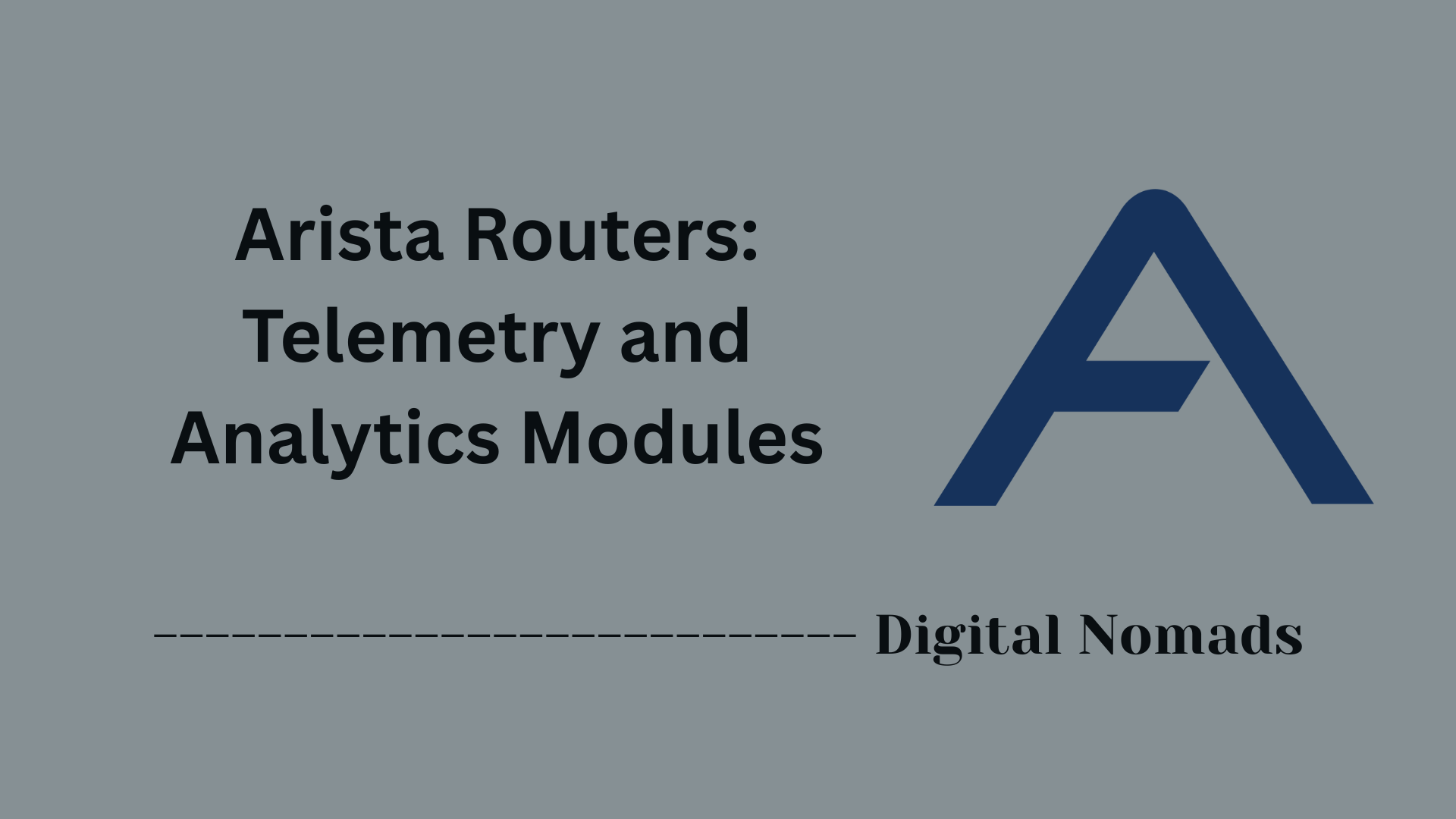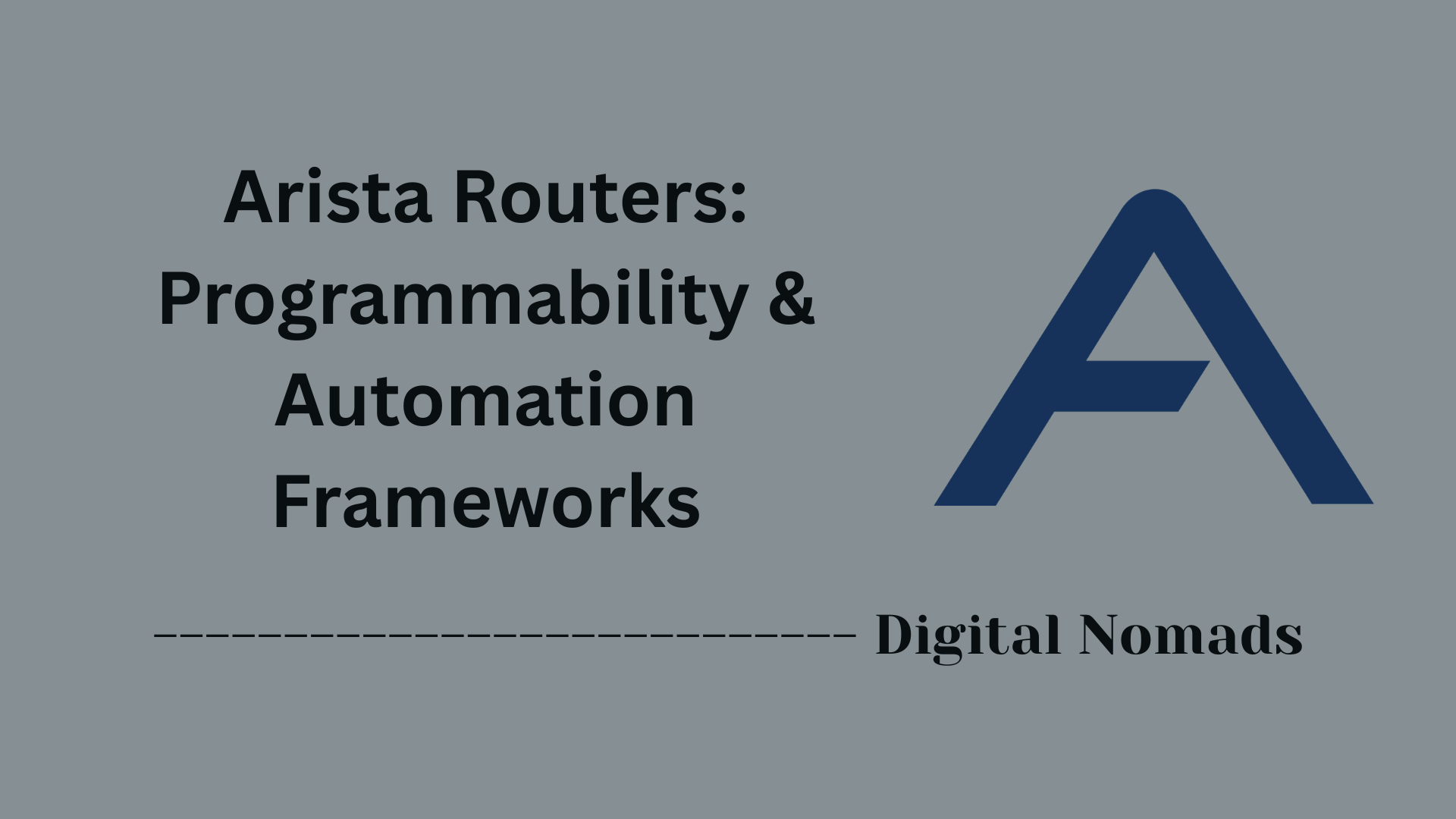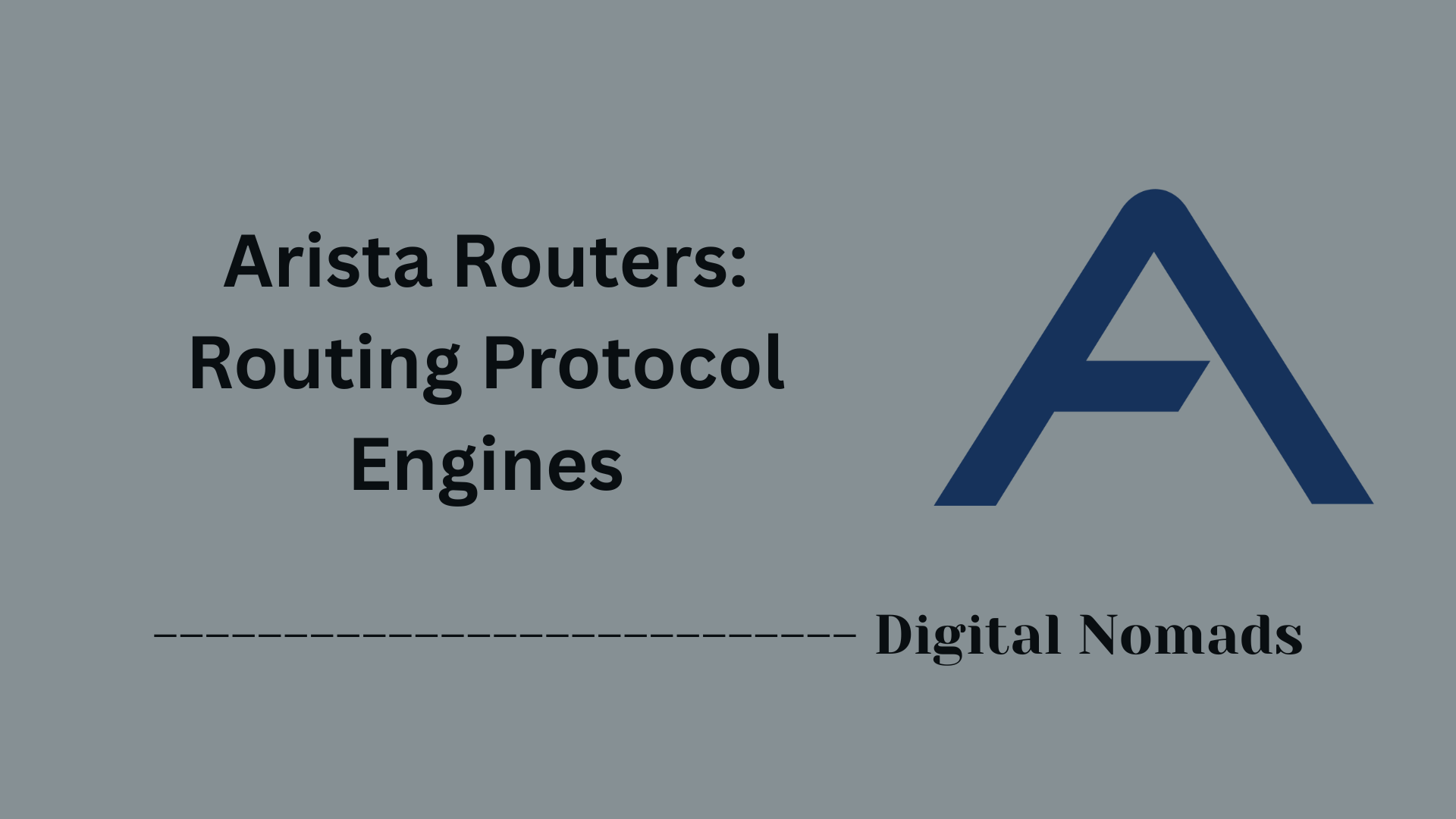Table of Contents
- Overview
- Hardware Platforms
- Key Hardware Features
- Modular Line Cards
- Key Capabilities
- Reference Table: 7500R Series Line Card Examples
- Conclusion
Overview: Arista Routers—Hardware Platforms and Modular Line Cards
Arista Routers are a family of high-performance, modular networking solutions aimed at modern data centers, cloud environments, enterprises, and service providers. They combine flexible hardware platforms with a broad portfolio of interchangeable modular line cards, making them adaptable for varied networking needs and future-proof for evolving requirements.
What Is It?
Arista’s modular router platforms—like the 7500R and 7800R3 series—are chassis-based systems designed to host a range of hot-swappable line cards. These line cards provide different network interfaces, speeds, and features (from 1G to 400G), allowing easy scaling and customization. The platform is engineered for high throughput, low latency, and resilient operation, supporting massive routing tables and advanced networking capabilities.
Why You Need to Know About It
- Scalability: As networks grow, the ability to add or upgrade line cards without replacing the entire chassis allows organizations to scale cost-effectively.
- Flexibility: Different use cases—edge, core, cloud interconnect—can be addressed with a single platform by using specific line cards tailored for port speed, density, and features (such as MACsec encryption or deep buffering).
- Reduced Downtime: Modular and redundant design means individual hardware components can be serviced or upgraded without taking the system offline, ensuring high availability.
- Investment Protection: Supporting both legacy and new line cards in the same chassis allows gradual upgrades and future expansion, maximizing return on hardware investments.
- Programmability and Automation: Deep integration with Arista EOS (Extensible Operating System) provides network-wide automation, telemetry, and unified management—key for agile data centers and cloud operations.
How It Works
- Chassis Architecture: The system consists of a chassis (such as 7504R, 7508R, or 7800R3), which houses multiple line card slots. These slots plug into a centralized, high-speed switching fabric and redundant supervisor modules for control and management.
- Line Cards: Each line card is hot-swappable and provides a set of ports (SFP+, QSFP, OSFP, RJ45, etc.) for connecting network devices. Cards support varying port speeds, port densities, and optional features like hardware encryption or long-haul optical transport.
- Redundant Components: Power supplies, fans, fabric modules, and supervisors are all made redundant and hot-swappable for continuous operation.
- Unified Software: All hardware is managed and automated via Arista EOS, offering common APIs, advanced telemetry, and network programmability across the entire hardware family.
- Operational Consistency: Whether deployed on-premises, at the edge, or in cloud environments, Arista’s routers provide the same user and automation experience.
In summary, Arista Routers with modular line cards are a foundational element for building scalable, cloud-ready, and agile networks, enabling organizations to adapt quickly to growing and changing connectivity demands.
Hardware Platforms
Arista Networks offers a range of high-performance modular hardware platforms designed for scalable, cloud-grade networking. These platforms support flexible line card configurations, industry-leading performance, and advanced features to meet the demands of data centers, enterprises, and service providers.
-
7500 Series (7500E, 7500R, 7500N, 7500R2, 7500R3):
Available in chassis with 4, 8, or 12 line card slots, the 7500 Series delivers non-blocking throughput with high-density 10G to 400G Ethernet support. Featuring a universal fabric design with Virtual Output Queuing (VoQ), these platforms provide low latency and head-of-line blocking mitigation. Redundant and hot-swappable supervisor and fabric modules enable high availability and easy maintenance.
-
7800R3 Series:
Designed for large-scale backbone core and spine deployments, the 7800R3 chassis scales up to 576 wire-speed 400G ports. It incorporates deep buffers for lossless switching and leverages the latest Jericho2C+ merchant silicon for enhanced programmability, encryption, and performance.
-
7280R3A Modular:
This flexible 4RU system supports up to 36 x 400G or 144 x 100G ports, offering a choice among standard, encryption-enabled, and large-scale switch cards.
Key Hardware Features include:
- Distributed switching with advanced packet memory of up to 16GB per line card
- Lossless, fair traffic distribution across all ports
- Modular backplane and fabric for easy upgrades and redundancy
- Industry-leading route scale and large routing table support enabled by the FlexRoute engine
Key Hardware Features
Arista routers are designed to deliver performance, scalability, and programmable networking with a range of advanced hardware features. These features are engineered to address the demands of modern data centers, service providers, and enterprise networks.
-
FlexRoute™ Engine:
Provides Internet-scale routing with support for millions of IPv4/IPv6 routes in hardware, delivering high route scale for demanding core and edge deployments[1][3].
-
High-Performance Packet Processing:
Arista platforms utilize the latest high-capacity merchant silicon (like Broadcom Jericho2C+), enabling wire-speed forwarding from 10G to 400G, deep packet buffers for burst absorption, and resilient system capacity with up to 14.4 Tbps per line card[5][6].
-
Deep Buffer Architecture:
Integrated ultra-deep packet memory—up to 16GB per line card—prevents packet loss during network congestion, ensuring smooth performance for bursty traffic patterns[6].
-
Modular and Redundant Design:
Support for hot-swappable power supplies, fans, supervisors, and line cards enables in-service maintenance and zero-downtime upgrades, with grid and component redundancy across platforms[6].
-
Comprehensive Encryption:
Wire-speed MACsec, IPsec, and VXLANsec encryption support, with integrated hardware acceleration, protects data traffic without compromising throughput[5][6].
-
Virtual Output Queuing (VoQ):
Minimizes head-of-line blocking and improves fairness across ports, ensuring consistent low latency and high throughput[6].
-
Algorithmic ACLs and Advanced Telemetry:
Support for large-scale access control lists (ACLs) and hardware-accelerated flow telemetry provides granular policy enforcement and detailed network visibility[6][8].
-
Programmable and Open Platform:
Arista's EOS (Extensible Operating System) offers a fully programmable Linux-based architecture, modular state sharing, and a suite of APIs (JSON-RPC, NETCONF) for automation, monitoring, and integration with cloud workflows[6][4].
Modular Line Cards
Arista’s modular router platforms enable flexible expansion through a wide selection of high-performance line cards. These line cards deliver industry-leading port density, speed, and advanced features to support evolving data center and backbone network needs.
-
7500 Series (E, R, R2, R3):
Supports a broad portfolio of line cards with various interface types and speeds, including SFP+, QSFP+, QSFP28 (10/25/40/50/100G), and OSFP (400G). These line cards offer non-blocking throughput, deep packet buffers (up to 24GB per card in latest models), and flexible breakout support for granular port configurations. Options include wire-speed MACsec encryption and DWDM optical transport for long-haul data center interconnect.
Model Port Types / Density Key Features DCS-7500E-48S-LC 48 x SFP+ (1/10G) Flexible mix of 1G/10G, hot swappable, wire-speed L2/L3 forwarding DCS-7500E-72S-LC 48 x SFP+ + 2 x 100G MXP (up to 72x10G) Integrated 100G MXP, versatile port configuration DCS-7500E-12CM-LC 12 x 100G MXP High-density 100G or breakout for 40/10G, integrated optics DCS-7500R3-36CQ-LC 36 x QSFP100 (100G/40G/4x25G/2x50G) Broad speed support, independent breakout per port, MACsec DCS-7500R3-24P-LC 24 x OSFP (400G) Breakout to 4x100G per port for ultimate high-density scaling 100G DWDM Line Card (7500E series) 6 x 100G Analog Coherent CFP2 Tunable DWDM optics for metro/long-haul, wire-speed MACsec -
7800R3 Series:
Designed for cloud-scale and core deployments, 7800R3 line cards enable massive scalability, supporting up to 48 x 100G QSFP or 36 x 400G OSFP ports per card. These modules feature deep buffers (up to 24GB), algorithmic ACLs, advanced telemetry, and accelerated sFlow for real-time network visibility.
Model Port Types / Density Key Features DCS-7800R3-48CQ 48 x QSFP100 (100/40/4x25/2x50G) High flexibility, large-scale breakout, extensive buffer DCS-7800R3-36P-LC 36 x OSFP (400G) Supports 4x100G breakout, deep buffer, low latency DCS-7800R3-48CQM 48 x QSFP100, MACsec support Hardware encryption options for secure transport -
7280R3A Modular:
This 4RU platform provides up to 36 x 400G or 144 x 100G ports through modular switch cards, with standard, encryption-focused, and large-scale (high-table) options. All modules are field replaceable and interoperable, ensuring simplified maintenance and scalability for evolving deployments.
Shared Capabilities Across Modular Line Cards:
- All models offer independent port speed and breakout settings per port, supporting multi-generational optic modules (SFP+, QSFP+, QSFP28, OSFP, CFP2, MXP).
- Extensive programmable telemetry, flexible ACLs, and hardware-accelerated encryption (MACsec, IPSec) for robust security and visibility.
- Consistent operation and management through Arista EOS across all line cards and hardware variants.
Key Capabilities
Arista routers deliver enterprise-class routing and programmability, enhanced security features, and seamless integration for multi-cloud and modern data center environments. Below are the foundational capabilities that set Arista’s modular platforms apart:
-
Scalable Cloud-Grade Routing:
Arista’s hardware and software platforms support millions of IPv4/IPv6 routes in hardware through the FlexRoute™ engine, enabling high-scale routing for edge, core, and WAN deployments. Route convergence and headroom ensure future-proof operation as route tables continue to grow[1][6].
-
High-Density, Multi-Speed Connectivity:
Platforms offer up to 576 x 400G ports per chassis, with support for multiple interface types (1/10/25/40/50/100/400G). This supports massive east-west and north-south traffic patterns required by large enterprises and service providers[1][5].
-
Deep Packet Buffers & Low Latency:
Integrated deep buffers (up to 24GB per line card) prevent congestion, maintain performance during traffic bursts, and support lossless fabric for mission-critical applications[1].
-
Integrated Security & Encryption:
Wire-speed MACsec, IPsec, and VXLANsec encryption are available on hardware-accelerated platforms, providing secure transmission for all traffic types across public and private networks, with no loss in throughput[1][2].
-
Adaptive SD-WAN and Application-Aware Routing:
Intelligent path selection, dynamic path steering, and application-aware routing are empowered by Arista’s CloudVision Pathfinder and adaptive WAN fabric, ensuring optimized, resilient service delivery across hybrid and multi-cloud environments[2][7].
-
Programmability, Automation & Telemetry:
Built on Arista EOS, all routers and switches offer programmable APIs, automated NetDevOps workflows, granular telemetry (real-time sFlow, Inband Network Telemetry), and a single operational model from data center to edge[1][4].
-
Consistent Software Across Hardware and Cloud:
Arista’s EOS runs natively on all physical, virtual, and cloud platforms, ensuring operational consistency and easy integration across all deployment types[1][2].
-
Multi-Generational Compatibility & Investment Protection:
Arista enables seamless upgrades and coexistence of older and next-generation modules, safeguarding IT investment as infrastructure evolves[5].
-
Reliability & High Availability:
Redundant, hot-swappable components (power supplies, fans, supervisors, line cards) and N+1 resilience ensure consistent uptime for critical applications[2][8].
Reference Table: 7500R Series Line Card Examples
The Arista 7500R Series offers a range of modular line cards that deliver flexible, high-density, and multi-speed connectivity for data centers and cloud networks. The following reference table summarizes key models and their core attributes:
| Line Card | Port Configuration | Max Port Rates | Buffer (GB) | Special Features |
|---|---|---|---|---|
| 7500R-36Q | 36 x QSFP+ (40G) | 96 x 10G 24 x 25G 6 x 100G |
8 | High-density 40G, breakout support, 1.44Bpps wire speed |
| 7500R-36CQ | 36 x QSFP100 (100G) | 144 x 10G/25G 72 x 50G 36 x 40G/100G |
24 | Multi-speed 10/25/40/50/100G, 4.32Bpps, deep buffer, breakout modes |
| 7500R-48S2CQ | 48 x SFP+ (1/10G) + 2 x QSFP100 (100G/40G) | 56 x 10G 8 x 25G 2 x 40G/100G |
4 | Mixed SFP+ and QSFP100, wire-speed, high flexibility |
| 7500R2A-36CQ | 36 x QSFP100 (100G) | 144 x 10G/25G 72 x 50G 36 x 40G/100G |
16 | AlgoMatch ACLs, accelerated sFlow, up to 2M routes |
| 7500R2AK-48YCQ | 48 x SFP+ (10G/25G) + 2 x QSFP100 (100G) | 56 x 10G 12 x 25G 2 x 100G |
4 | AlgoMatch ACLs, mixed mode, power-efficient |
| 7500RM-36CQ | 36 x QSFP100 (100G, MACsec) | 144 x 25G 36 x 100G |
24 | Integrated MACsec encryption, deep buffer, future-proof |
- All models support industry-standard pluggable optics and allow independent port speed/breakout settings.
- AlgoMatch-enabled cards provide enhanced access control, telemetry, and efficient policy enforcement.
- Buffer values and maximum rates ensure optimal performance in bursty and cloud-scale traffic environments.
- Refer to official Arista datasheets for current firmware compatibility and detailed feature specifics.
Conclusion
In conclusion, Arista’s router platforms and modular line cards provide an exceptional combination of scalability, flexibility, and high performance designed to meet the demanding needs of modern data centers and cloud networks. From the versatile 7500 Series chassis with its broad line card choices, to the cutting-edge 7800R3 platforms delivering massive throughput and deep buffering, Arista delivers hardware built for today’s and tomorrow’s networking challenges.
Key takeaways include:
- Robust hardware platforms designed for non-blocking, low-latency, and highly available operation.
- A wide selection of modular line cards supporting multi-speed ports from 1G to 400G, including advanced encryption and telemetry features.
- Industry-leading capabilities like FlexRoute routing, deep packet buffers, and programmable software — all backed by the consistent and extensible Arista EOS operating system.
- Investment protection through modularity, allowing seamless coexistence and upgrade paths for evolving network demands.
Whether you are building a cloud backbone, a hyperscale data center, or a service provider edge, Arista’s router hardware platform solutions offer unmatched flexibility and performance.
Thank you for following along with this deep dive into Arista routers and their modular line cards! If you have any questions or want to learn more, feel free to reach out or leave a comment — happy networking!




